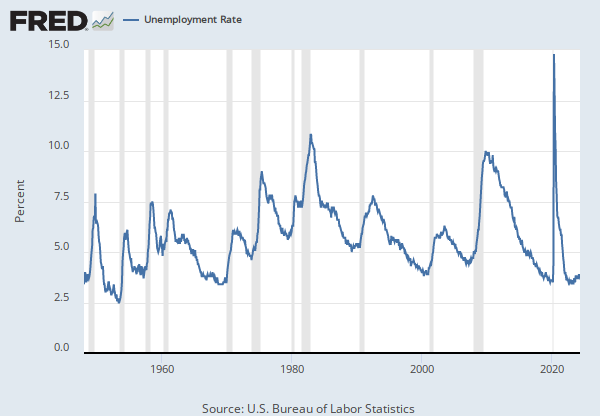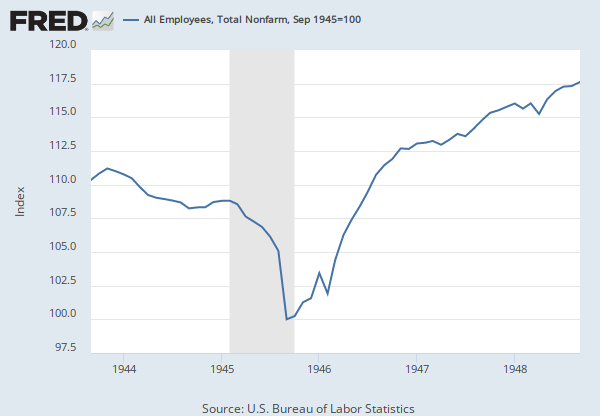Federal Reserve Economic Data
- Release Calendar
- FRED Tools
- FRED News
- FRED Blog
- About FRED
Data in this graph are copyrighted. Please review the copyright information in the series notes before sharing.
NOTES
Source: Organization for Economic Co-operation and Development
Release: Main Economic Indicators
Units: Persons, Seasonally Adjusted
Frequency: Quarterly
Notes:
OECD Data Filters:
REF_AREA: USA
MEASURE: WAP
UNIT_MEASURE: PS
TRANSFORMATION: _Z
ADJUSTMENT: Y
SEX: _T
AGE: Y15T64
ACTIVITY: _Z
FREQ: Q
All OECD data should be cited as follows: OECD (year), (dataset name), (data source) DOI or https://data-explorer.oecd.org/. (accessed on (date)).
Suggested Citation:
Organization for Economic Co-operation and Development, Infra-Annual Labor Statistics: Working-Age Population Total: From 15 to 64 Years for United States [LFWA64TTUSQ647S], retrieved from FRED, Federal Reserve Bank of St. Louis; https://fred.stlouisfed.org/series/LFWA64TTUSQ647S, .
Source: U.S. Bureau of Labor Statistics
Release: Employment Situation
Units: Thousands of Persons, Seasonally Adjusted
Frequency: Monthly
Notes:
All Employees: Total Nonfarm, commonly known as Total Nonfarm Payroll, is a measure of the number of U.S. workers in the economy that excludes proprietors, private household employees, unpaid volunteers, farm employees, and the unincorporated self-employed. This measure accounts for approximately 80 percent of the workers who contribute to Gross Domestic Product (GDP).
This measure provides useful insights into the current economic situation because it can represent the number of jobs added or lost in an economy. Increases in employment might indicate that businesses are hiring which might also suggest that businesses are growing. Additionally, those who are newly employed have increased their personal incomes, which means (all else constant) their disposable incomes have also increased, thus fostering further economic expansion.
Generally, the U.S. labor force and levels of employment and unemployment are subject to fluctuations due to seasonal changes in weather, major holidays, and the opening and closing of schools. The Bureau of Labor Statistics (BLS) adjusts the data to offset the seasonal effects to show non-seasonal changes: for example, women's participation in the labor force; or a general decline in the number of employees, a possible indication of a downturn in the economy. To closely examine seasonal and non-seasonal changes, the BLS releases two monthly statistical measures: the seasonally adjusted All Employees: Total Nonfarm (PAYEMS) and All Employees: Total Nonfarm (PAYNSA), which is not seasonally adjusted.
The series comes from the 'Current Employment Statistics (Establishment Survey).'
The source code is: CES0000000001
Suggested Citation:
U.S. Bureau of Labor Statistics, All Employees, Total Nonfarm [PAYEMS], retrieved from FRED, Federal Reserve Bank of St. Louis; https://fred.stlouisfed.org/series/PAYEMS, .
RELEASE TABLES
RELATED DATA AND CONTENT
Data Suggestions Based On Your Search
Content Suggestions
Other Formats
Infra-Annual Labor Statistics: Working-Age Population Total: From 15 to 64 Years for United States
Annual, Not Seasonally Adjusted Annual, Seasonally Adjusted Monthly, Not Seasonally Adjusted Monthly, Seasonally Adjusted Quarterly, Not Seasonally AdjustedAll Employees, Total Nonfarm
Monthly, Not Seasonally Adjusted






























